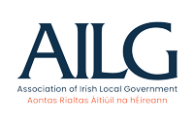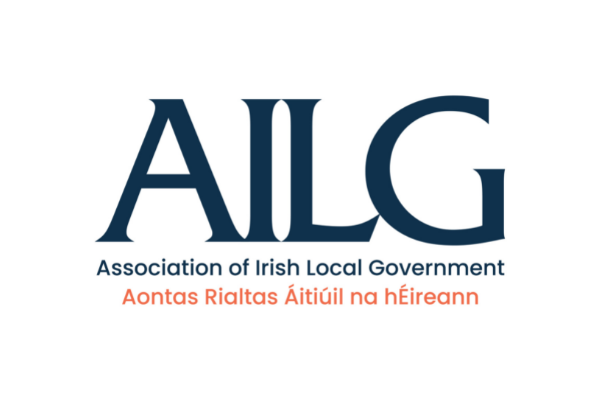Tuesday 13th July 2021
STATEMENT
The Association of Irish Local Government (AILG)
Local government plays a vital role in providing a forum for the democratic representation of communities as well as promoting the well-being and quality of life of citizens and communities through the efficient performance of functions and delivery of good-value services at local level. The Association of Irish Local Government (AILG) is the primary national body representing the 949 democratically elected local councils across Ireland and the 31 local authority members.
The AILG was contacted by the RTÉ Prime Time Investigates Unit on Wednesday, 5th August 2020 seeking accounting details on individual payments to councillors. This request was received by then AILG President, Councillor Mick Cahill as part of an investigation RTÉ was undertaking concerning Councillors’ expenses related to conferences, training seminars and meetings of external bodies and was one of two separate written correspondences with the broadcaster.
Where in a position to do so, AILG provided detailed responses to the queries received and at all times remained open in communication with the RTÉ Investigates Unit. At the same time, the AILG kept its Executive and broader membership appraised of the queries received from RTÉ and the respective responses issued.
Following on from this correspondence, on Thursday, 27th May 2021, current AILG President, Councillor Mary Hoade received an interview request from the RTÉ Prime Time Investigates Unit asking her to participate on behalf of the Association on a programme concerning Councillors’ expenses related to conferences, training seminars and meetings of external bodies. Councillor Hoade responded to RTÉ confirming that AILG would agree in principle to participate in an interview.
The Association’s participation was formally ratified at an AILG Executive meeting on Thursday, 3rd June. To establish greater context around the subject matter of the interview, AILG asked RTÉ to provide additional information on the broad range of topics that might be covered; specific questions that may relate to AILG; the overall context of the programme; and other participants invited to interview.
In response RTÉ could only confirm that the programme would cover general areas of payments to Councillors for travel and subsistence for attending conferences, training seminars and meetings of external bodies. Based on the information provided by RTÉ the AILG Executive decided that the most appropriate person to represent the Association and discuss these general areas on the programme would be AILG Director, Mr Tommy Moylan, in the context of his remit as accounting officer of the Association responsible for the local government audit. This was communicated to RTÉ on Wednesday, 9th June offering a range of dates Mr Moylan was available for interview, at AILG’s head office in Maynooth, Co. Kildare.
The interview was pre-recorded with Mr Moylan on Wednesday, 16th June. During the interview Mr Moylan provided detail on the following areas specifically in relation to the AILG:
- The role and remit: As a representative body AILG provides a networking, policy development and training resource for the elected members of local authorities. Any change to the role and remit of AILG would be at the discretion of national government and the Association would fully comply in any such instance as directed by national government.
The statutory remit specific to the AILG under both the 2001 and 2014 Local Government Acts, following a merger of the two previous national representative bodies after the 2014 local government reforms includes:
- The carrying out of the activities necessary to represent the interests of members and member local authorities.
- Policy research, development, and advocacy.
- Delivery of education and training.
- Assessment of public policy as regards any matter relating to local government.
- The provision of advice and the making of submissions to the Minister, department(s) or other state agencies on areas of local government or other public policy areas as appropriate.
- Structure and income: The Association is structured on each of the 31 local authorities nominating three delegates to AILG (93 delegates in total) for the full 5 year-term of any local election period. AILG has no say in who the local authority delegates are and the full membership is embraced regardless of membership of other bodies. The Association has three full-time staff members.
AILG’s main source of income is derived from receipt of an annual subscription from the 31-member local authorities, in line with provisions under the 2001 Local Government Act. This annual subscription accounts for over 70% of the Association’s annual income with the remaining income primarily coming from training revenue. Approximately 95% of funding comes from public taxation.
- Education and training: AILG carries out a vital representative and support service to members in the areas of training, education, policy development, research and advocacy. Since 2014 the Association has delivered 1000’s of hours of training to members in areas of planning, housing, community development, finance and budgeting, roads and transportation, climate action and environment.
AILG has partnered with state bodies such as the Office of the Planning Regulator, Irish Water, EPA, Regional Assemblies, the Housing Agency along with numerous government departments to provide detailed training modules to members. In addition, the AILG has established a strategic partnership with Maynooth University for the further progression of a professional policy and research development programme advancing the Association’s goal to provide certified training to members that will lead to a recognised qualification.
- Value for money: Local government is a central element to democracy, enshrined in the constitution, and it is appropriate that local Councillors have the required skillset in a complex and ever-changing local government arena to effectively discharge their democratic mandate with increased workloads and responsibilities. The local government system will only work with diverse, skilled public representatives.
AILG represents the collective interest of members as key stakeholders in the local government system. Through regular engagement with central government, government departments and state agencies, AILG ensures that the voice, views and contribution of members is heard and appreciated in all areas of local government throughout the full range of public agencies. This cannot be done on an individual local authority basis. The overall objective is to ensure a robust local government system to represent the general public. This is what AILG funding is used for.
- AILG payment and reporting obligations: The AILG delegate body meets six times per annum, including the AGM. Delegates are entitled for payment of travel and subsistence for this attendance, under the same entitlement as any private or public sector employee. Rules for payment of appropriate travel and subsistence are set out by national government in accordance with Revenue approval, under regulations set across the entire public sector. AILG are bound and adhere strictly to these rules.
Under provisions of the 2001 Local Government Act, AILG has stringent statutory obligations to keep proper records, books of account and produce annual financial accounts which are audited by the Local Government Audit Service. The Association is also statutorily obligated to submit copies of audited accounts and audit report (from the Local Government Auditor) to the 31 member authorities, the Department of Housing, Local Government and Heritage and the Minister for Housing, Local Government and Heritage. AILG’s annual financial accounts are complete to date and all accounting records rest with the Local Government Audit Service.
It is and has always been the policy of AILG to submit quarterly returns of payments made to delegates directly to their parent council on their behalf when requested to do so. This request may come directly from the delegate themselves or may come directly from their local authority with the permission of the delegate. AILG on an ongoing basis sends payment details of delegates directly to their parent Local Authority.
For the period 2015 and 2016, AILG prepared hard copies of members quarterly returns, detailing payments made to them for meetings attended. These returns were printed and made available to delegates at bi-monthly AILG plenary meetings. Hard copies of returns were produced at this time because:
- This was a new obligation contained in the 2014 Local Government Act and as such some local authorities did not have a system in place for digitally receiving them and AILG believed hard copies would be more helpful to delegates.
- AILG believed the returns needed to be signed and dated by the delegate for submission to their parent local authority.
AILG discontinued the practice of producing hard copy returns by the end of 2016 as by then local authorities were happy to accept details of delegate payments by email confirmation. A record of all quarterly returns filed is kept by the Association. The AILG is a fully transparent and accountable body both in both terms of the work and expenditure of the Association. The Association is fully compliant with the rules as they are set out under the 2001 Local Government Act and if those rules change AILG will adapt its processes accordingly.
- Councillor payment and reporting obligations: All elected members have their own reporting obligations under the 2001 Local Government Act. This includes a requirement and obligation on members who are appointed or nominated to another body to notify the local authority concerned of all attendances by the member at meetings of the body concerned and any payments made by that body. Individually all Councillors are expected to comply with all statutory regulations for attendance at any external body.
AILG has not seen or read any evidence to suggest its members have not been fully compliant with reporting obligations. The Association does not condone any deviation away from the highest standards that are expected of members or any public representatives in complying with rules and regulations to ensure that there is no misuse of public funds when it comes to claiming travel and subsistence. Councillors who are a delegate of AILG or any other outside body, have a personal responsibility and must be aware of their obligations to correctly report payments.
AILG on a regular basis, informs and reminds members of their duties and reporting obligations to ensure that they are fully aware of their responsibilities and that they are fully compliant with statutory obligations. This includes induction training after each local election and the launch of AILG’s Elected Members Guidance Manual after the 2019 local elections. There is also an obligation at local authority level to remind elected members of their reporting duties.
In relation to the issues raised in RTÉ Prime Time Investigates Programme, it is only right and proper that the Councillors referenced in the programme have made contact with their respective local authority or other relevant external body to review their individual records and take appropriate action to rectify the situation if necessary.
AILG will continue to support democratically elected councillors in their role as community champions and as the policy making arm of their respective local authorities. It is vital that local councillors are fully equipped to represent the views of their communities and their local authority as a whole. AILG is committed to its core function in ensuring that local councillor have the necessary tools and knowledge to fully fulfil their role in community and engagement.
ENDS
13.07.21
NOTE TO EDITOR
For further information please contact
Elaine Lynch (AILG Communications Officer) / Tel: 087-3470274
Email: e.lynch@ailg.ie

